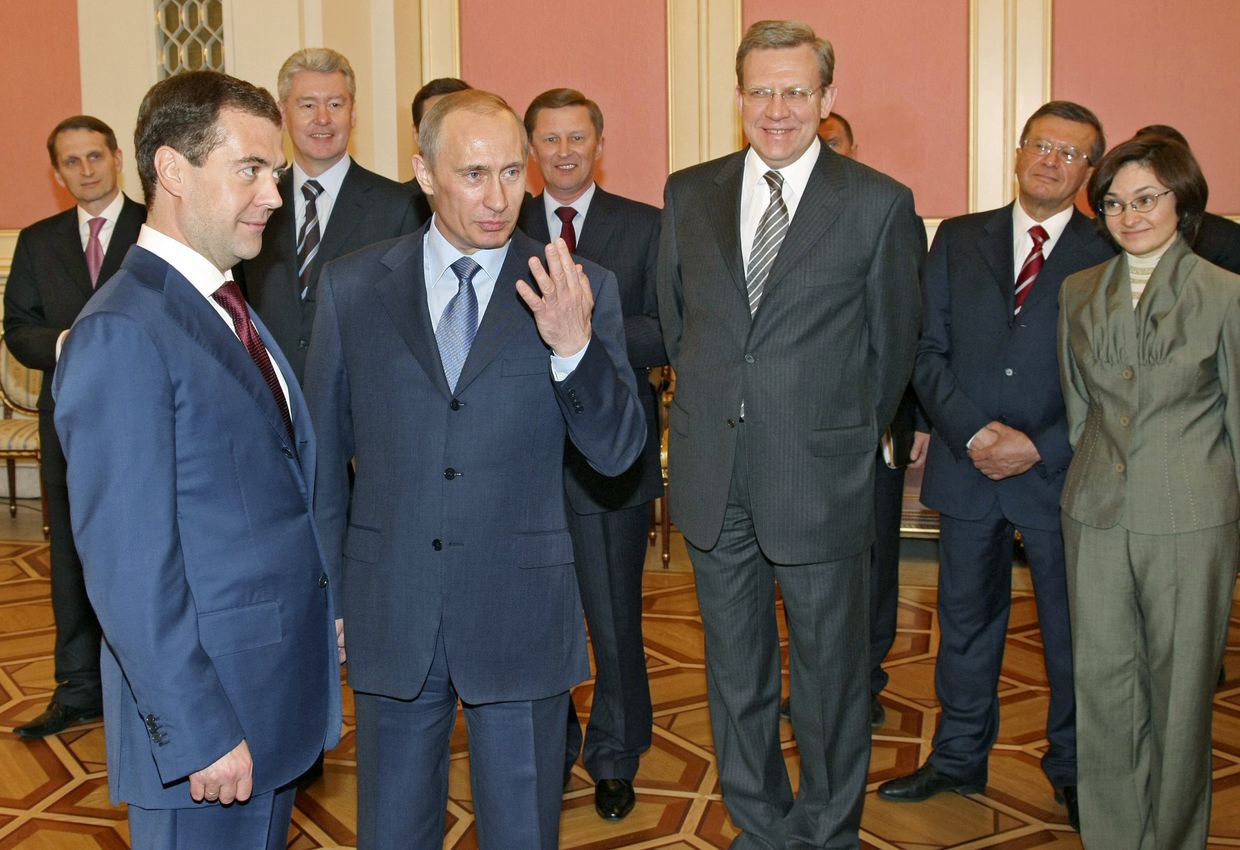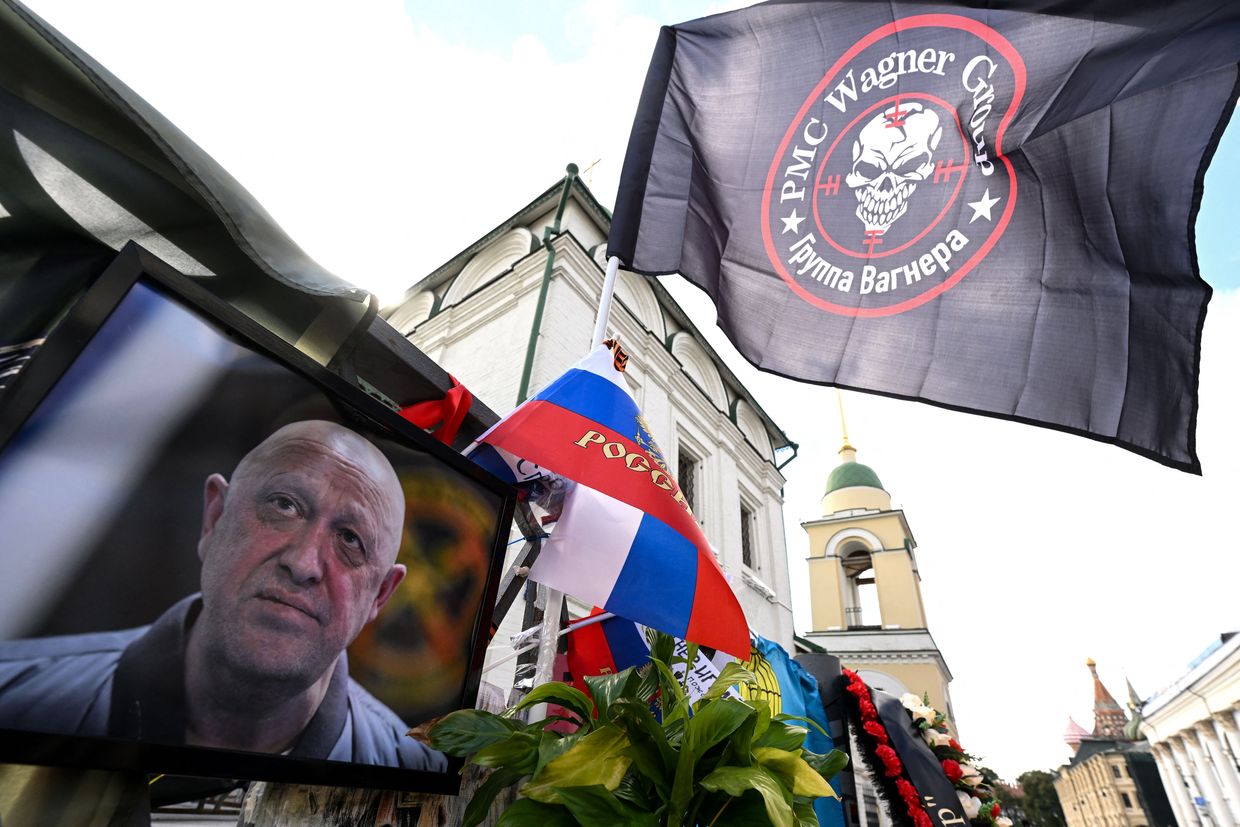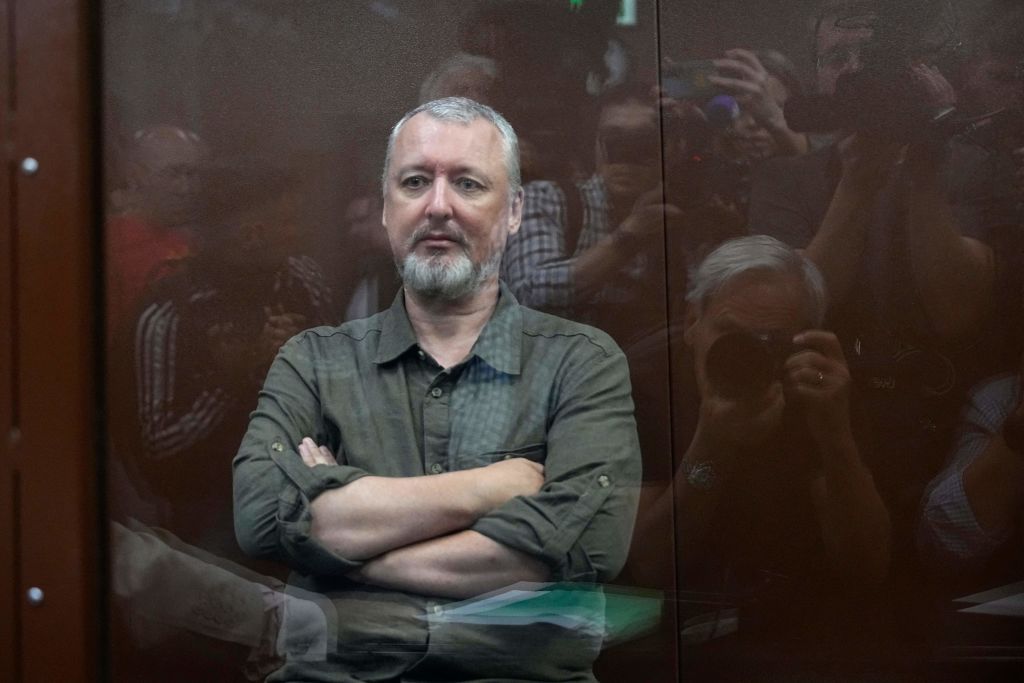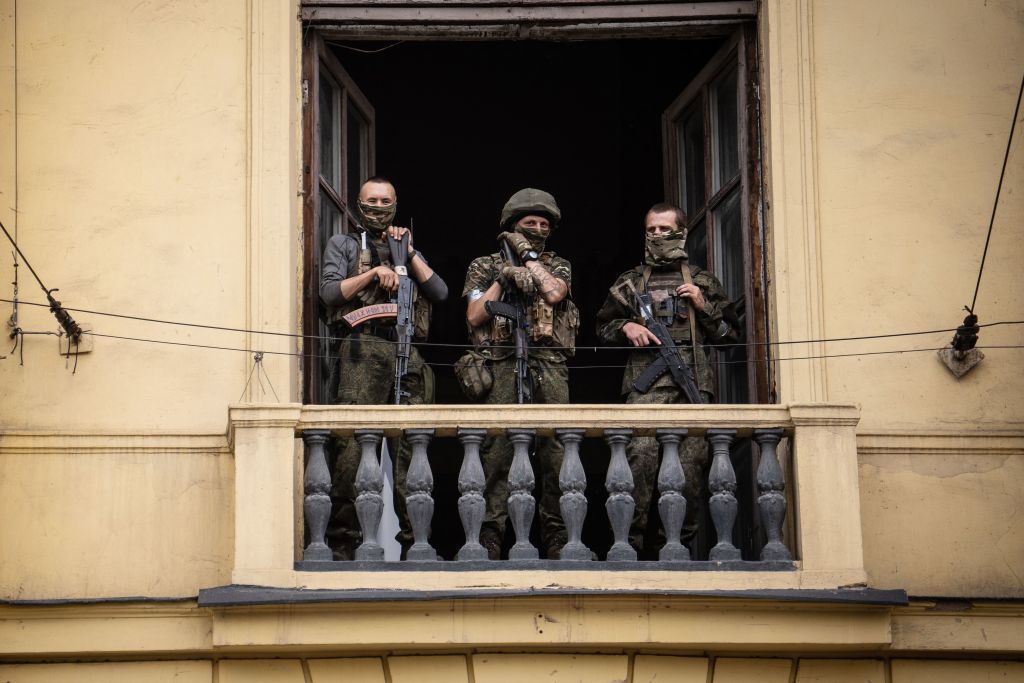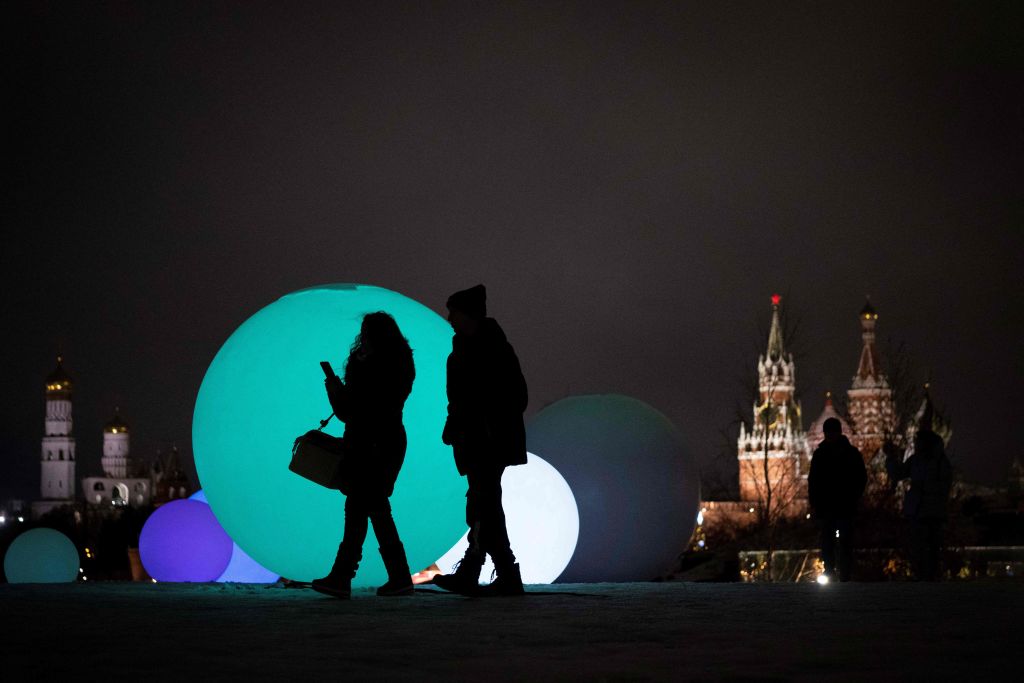Putin plays it safe by delaying new mobilization ahead of election in Russia

Russian President Vladimir Putin said on Dec. 8 that he would participate in the upcoming presidential elections in March, seeking his 5th term in office.
Putin, 71, has been in power since 1999 and it’s all but certain that he will secure a six-year term.
Russia’s upcoming presidential election on March 17, 2024 lacks intrigue and can hardly be called a real election at all. Analysts say that it is a sham ritual used to legitimize Putin’s dictatorial rule.
The almost complete elimination of the opposition, the Kremlin’s monopoly on mass media and large-scale vote rigging will be used to ensure a victory for Putin, with his official percentage of the vote most likely being at an all time high.
And yet, to ensure a smooth ritual, Putin appears to avoid decisions that may irritate the electorate, such as a second wave of mobilization of conscripts for the war Russia wages against Ukraine.
Russian political analyst Georgy Satarov said that Putin is cautious about the election, even though it doesn't hold any intrigue.
“Putin has always been careful,” he told the Kyiv Independent. “He doesn’t like taking risks.”
Neither vote rigging during the election nor a potential mobilization are likely to lead to a popular rebellion, analysts say. But the Russian government will tend to minimize risks before what they see as a vote of confidence for Russia’s war against Ukraine.
Fake popularity
Seemingly, Russia’s full-scale invasion of Ukraine gave a boost to Putin’s popularity.
His approval rating rose from 69% in January 2022 to 85% in November 2023, according to Russian pollster Levada Center, which is considered independent.
The approval rating differs from the electoral one, which determines how many voters would back a candidate in elections.
In December 2021, Putin’s electoral rating amounted to 32% of all respondents and 49% of those who have made their choice and are going to vote, Levada Center said.
Now Putin appears to be even more electable.
According to a Dec. 7 Levada Center poll, 58% of all respondents would vote for Putin. Out of those who are going to vote and have made their choice, 85% would back him.
However, Putin’s rating is artificial because it is based not only on popularity but also on intimidation, the complete destruction of Russia’s opposition, and the Kremlin’s full control over television and most other media.
Opinion polls in authoritarian countries like Russia are strongly distorted because many people are afraid to say what they really think, according to Russian sociologist Grigory Yudin.
This became especially relevant after the Kremlin intensified repression amid its war against Ukraine, jailing people for both criticizing the war and engaging in any peaceful protests.
Russian political analyst Dmitry Oreshkin believes that the role of fear is exaggerated. But he said that Putin’s rating may plummet if the regime is ousted and state propaganda changes.
“If television says different things, the public opinion will change immediately,” he told the Kyiv Independent. “The public opinion is a reflection of the propaganda.”
The elimination of Russia’s opposition has also cleared the field for Putin, allowing him to run without any serious competitors.
Currently, there are 419 political prisoners in Russia, according to Memorial, a human rights watchdog.
Putin’s strongest opponent, opposition leader Alexei Navalny, and all of his allies have been banned from participating in elections.
In 2020, Russia’s Federal Security Service attempted to kill Navalny by poisoning him with a Novichok nerve agent, according to an investigation by the Insider, Bellingcat, CNN and Der Spiegel.
He was jailed by Russian authorities on trumped-up charges in 2021, and his lawyers were arrested in October 2023.
Several of his allies have been jailed for being members of Navalny’s team – peaceful opposition activities that the Kremlin calls “extremism” - and others have fled abroad.
In April, another critic of Putin, liberal politician Vladimir Kara-Murza, was sentenced to 25 years in prison for speaking about Russia’s war crimes in Ukraine – an unprecedented term given for peaceful political activities.
Igor Girkin (also known as Strelkov), Putin’s most prominent critic in the pro-war camp, was arrested on extremism charges in July in what was widely seen as the Kremlin's response to his criticism of Putin.
Girkin, a convicted criminal who has been sentenced to life imprisonment in absentia by a Dutch court for downing a passenger plane over Ukraine in 2014, announced in November he would run for president.
However, the chances that the Kremlin will approve his candidacy for a presidential run are zero, according to independent analysts.
The threat of independent election observers has also been eliminated.
In August, Grigory Melkonyants, a co-chairman of Russia’s most prominent election watchdog Golos, was arrested on charges of cooperating with the European Network of Election Monitoring Organizations (ENEMO), which the Kremlin labels as an “undesirable” group.
Having destroyed genuine opposition, the Kremlin only needs to choose convenient sparring partners for Putin. Candidates in Russian elections are usually figures loyal to Putin and are screened by the Kremlin before they are allowed to run.
Meduza reported in August, citing its sources, that the Kremlin had chosen Putin’s competitors. These include Gennady Zyuganov from the Communist Party, Leonid Slutsky from the LDPR nationalist party, and Alexei Nechayev from the New People party, according to Meduza.
As few as 1.3% of all respondents would vote for Zyuganov, and 0.5% would back Slutsky, Levada Center said on Dec. 7. Nechayev’s percentage was too negligible to be included in the rating.
Voting fraud
But even with his artificially inflated rating, Putin will still need to rig the election to ensure a landslide victory.
According to Russia's unwritten rules, in each election Putin must receive more votes than in the previous one, Oreshkin said. In the 2018 presidential election, Putin got 77.5%.
The amount of vote rigging has gradually increased in Russia since 2000, according to Russian electoral statistician Sergei Shpilkin and Alexander Kireyev, a Russian-born electoral geographer based in the U.S.
Election watchdogs have published numerous reports and videos containing evidence of ballot stuffing and other fraud in recent elections.
Vote rigging culminated in the 2020 vote to approve constitutional amendments allowing Putin to run for two more presidential terms after his current one expires in 2024. The vote effectively made Putin, who has been in power since 1999, dictator for life.
Even in contrast with other Russian elections, the 2020 vote was extreme: Observers had to be approved by a Kremlin-controlled NGO, which means there were almost no independent watchers. Vote monitoring was also made virtually impossible by extending the vote over a week and allowing people to vote en masse at home and outside polling stations.
Kireyev said that the 2020 vote was the most falsified one in Russia’s modern history since 1991. Based on a mathematical analysis of official data, he estimated the amount of rigged votes at 20 million.
Russia’s 2021 parliamentary election was not far behind. According to Shpilkin, around 14 million votes were rigged.
Putin’s United Russia party officially got 49.9% of the vote, or 324 seats out of 450. If not for vote rigging, it would have gotten only 30%, according to a mathematical analysis of the results by Shpilkin and Kireyev.
Prospects of mobilization
The upcoming election appears to have an impact on Putin’s key decisions on the war against Ukraine. Specifically, it may be one of the reasons why he is postponing the second wave of mobilization of conscripts for the war.
Due to its unpopularity, Putin did not announce mobilization at the beginning of Russia’s invasion of Ukraine in February 2022 and delayed the move until September 2022.
A total of 318,000 conscripts were mobilized, according to the Russian authorities. An estimate by Russian independent online media outlet Mediazona put the number of mobilized soldiers at 527,000.
The mobilization triggered protests, and between 600,000 and 1 million men left Russia in the two weeks following the start of the mobilization, according to Forbes. In the wake of the mobilization, Putin’s approval rating fell from 83% in August 2022 to 77% in September 2022, according to Levada Center.
Putin announced the completion of the mobilization in October 2022 but his decree on mobilization still remains in force, which means it can be resumed at any time.
There are some signs that a second wave of mobilization may happen.
In July, the Russian parliament approved bills seeking to increase the conscription age from 27 to 30 and to drastically increase fines for failing to show up at a military enlistment office.
The legislation also bans conscripts and mobilized soldiers from going abroad immediately after a draft notice is issued. Under previous legislation, the ban came into effect seven days after the issuance of a draft notice.
“This legislation was written for a big war, for general mobilization,” Andrei Kartapolov, head of the defense committee of the Russian parliament’s lower house, said in July. “And now a big war is likely.”
However, it is not clear now whether Putin desperately needs a second wave of mobilization.
On the one hand, many Russian conscripts have spent more than a year in Ukraine without being rotated. Moreover, a lack of manpower has been cited by military analysts as one of the reasons for Russia’s lack of success in its offensives.
Russian hawks like Girkin have long called for general mobilization as the only way to win the war against Ukraine.
However, even if these reasons are valid, Putin is reluctant to take such an unpopular measure in the run-up to the 2024 election, analysts say.
Oreshkin said that the authorities “got scared” after the first wave of mobilization triggered widespread discontent.
“If there is a mobilization, it will definitely be carried out after the election, not before,” he added.
After the election, Putin may also decide to put the economy entirely on a war footing – a move known as economic mobilization, Sergei Sazonov, a Russian-born political philosopher at New York University, told the Kyiv Independent.
On the other hand, Russia has partially offset the lack of mobilization by recruiting contract soldiers en masse. To attract more recruits, the authorities have offered them between 195,000 rubles ($2,109) and 242,000 rubles ($2,618) per month - a salary that substantially exceeds the average wage in Russia.
Dmitry Medvedev, a former president and now deputy chairman of Russia’s security council, claimed on Dec. 1 that 452,000 contract soldiers had been hired since Jan. 1. Ukraine’s military intelligence said in October that Russia was recruiting 20,000 contract soldiers monthly.
Moreover, Russia has not suffered any major defeats since late 2022, which may indicate that mobilization is not as urgent now as during the first wave.
“Unless something dramatic happens suddenly, mobilization will not be necessary,” Sazonov said. “They have enough manpower.”
Oreshkin agreed that “as long as they have money, they may not have to carry out mobilization.”
Popular rebellion?
Some also question the logic of postponing mobilization and other big decisions until the election, given that its results are guaranteed due to vote rigging, repression and propaganda.
Sazonov believes that Putin does not have to worry about the public opinion, since this will not be a genuine election.
But Oreshkin thinks that elections in Russia, although they are not democratic, are important for the Kremlin because they serve as a ritual legitimizing the authoritarian regime. This is why Putin thinks public discontent or protests should not undermine the election, according to Oreshkin.
“A smooth ritual shows the strength of the government,” he said.
Oreshkin also said that, although elections are rigged, the Kremlin’s control over elections is not total. The Russian authorities can add 20 percent out of 80 to make Putin win big but it would be harder to rig the whole 80 percent Putin is expected to get, he added.
Despite Putin’s apparent concerns, analysts say that protests against vote rigging, mobilization or the war against Ukraine are not a major threat to Putin now.
If there are such protests, they will be immediately suppressed, according to Oreshkin.
“There may be some rallies,” he said. “But popular wrath will not rise and will not sweep (Putin) away.”


